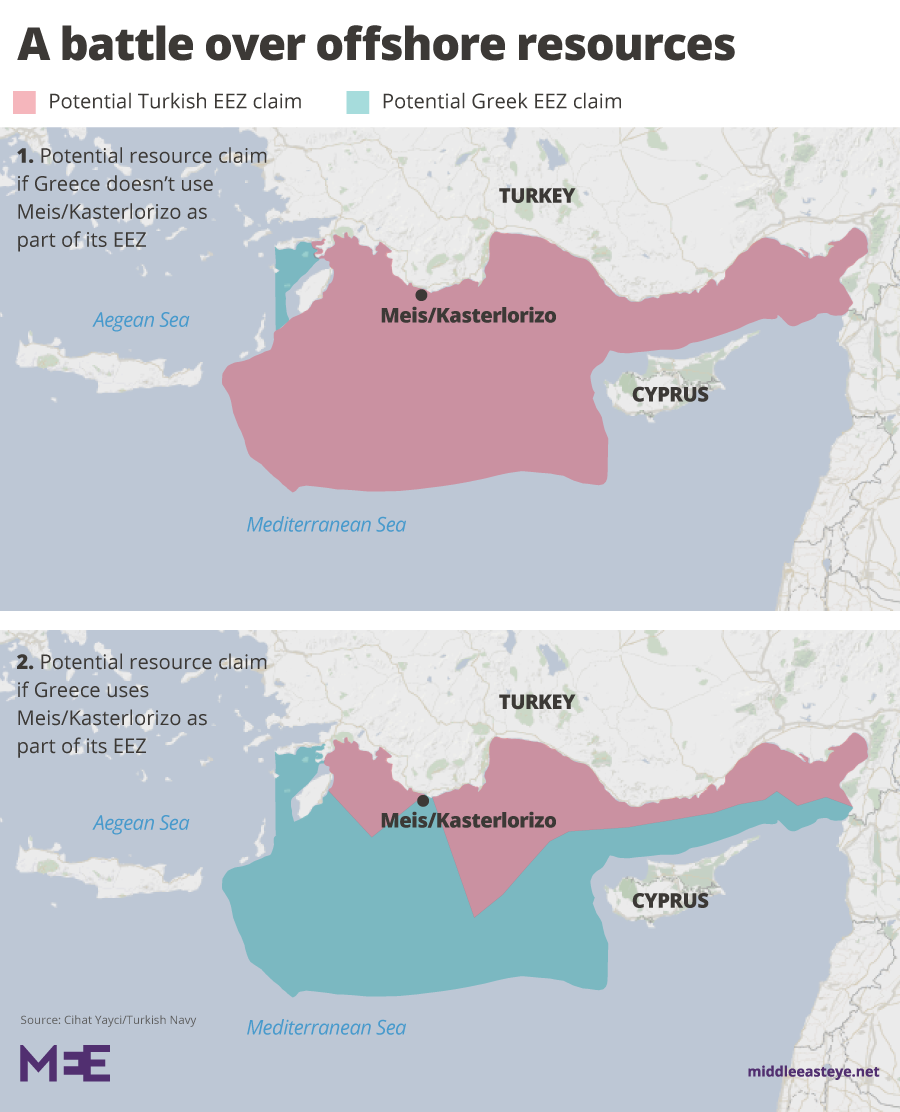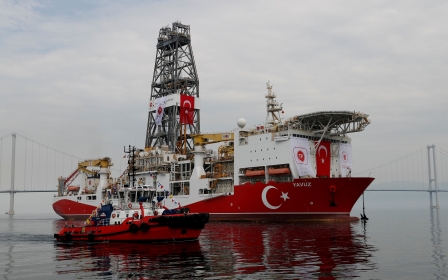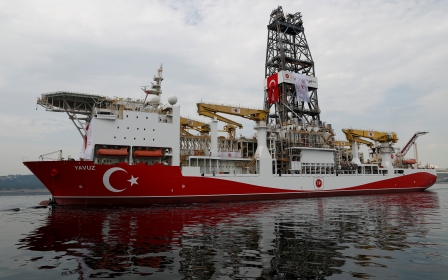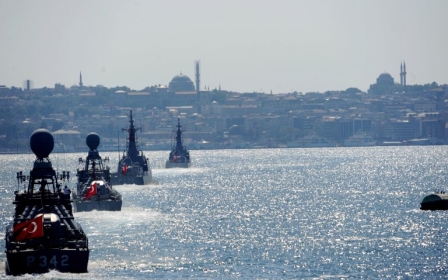Turkey set for Cyprus offshore drilling, spiking tensions in the Mediterranean
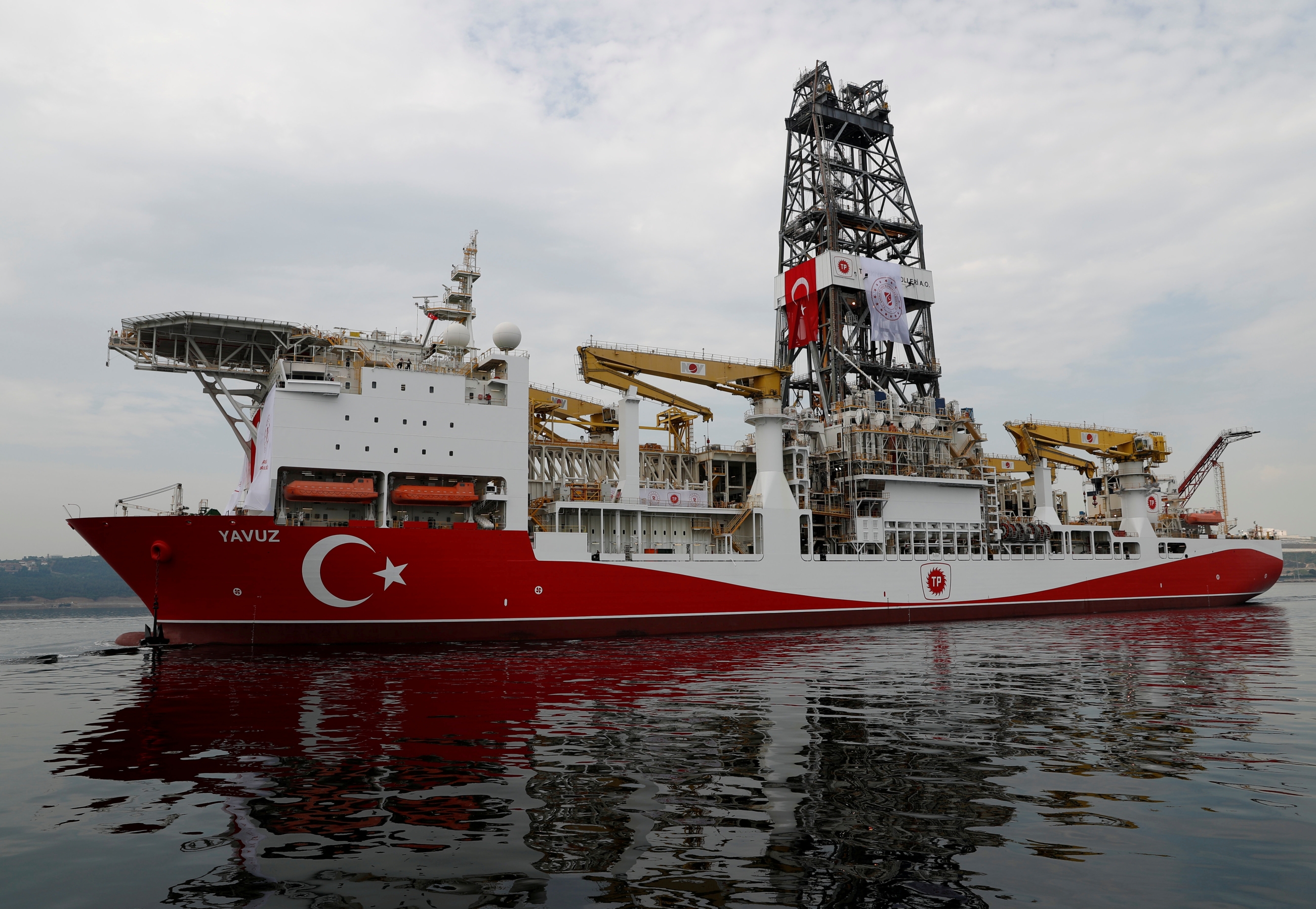
Turkey has announced preparations to start drilling for oil and gas off the coast of Cyprus, pushing ahead with its plans despite Greek accusations of a "flagrant violation".
Turkish Energy Minister Fatih Donmez said on Saturday that the Yavuz exploration ship has reached its destination southwest of Cyprus and will soon start drilling.
Turkey has already drilled east and west of Cyprus but years of tensions have now intensified over the rights for natural resource exploration in the eastern Mediterranean.
Turkey has said the Greek Cypriot authorities have been exploring in waters that either belong to Ankara or where Turkish Cypriot authorities would have a right to any discoveries.
The Greek Cypriot authorities have accused Turkey of sending the Yavuz to waters it has already licensed itself.
Greek Prime Minister Kyriakos Mitsotakis urged the United States on Saturday to use its influence to defuse the tensions.
"The United States have a particular interest in the Eastern Mediterranean region. Cyprus is only asking for the self-evident, the implementation of international law," Mitsotakis told US Secretary of State Mike Pompeo, who is visiting Greece on the last leg of a trip to southern Europe.
"I anticipate the positive contribution of the United States to lead to the creation finally of a more constructive and fruitful climate of cooperation in the region," Mitsotakis said.
Pompeo later said they had told Turkey the drilling was "unacceptable".
The Greek Cypriot authorities have been working with Greece and Israel on a plan that would pipe gas from the Eastern Mediterranean into Europe, but rights over explorations in the area are disputed by Turkey.
In June, EU leaders warned Turkey to end drilling in waters around the island or face action from the bloc.
Turkey and Greece are allies in Nato but have long been at loggerheads over Cyprus, which has been ethnically split between Greek and Turkish Cypriots since 1974, when Cyprus was divided after a brief Greek-inspired coup triggered a Turkish invasion.
The Republic of Cyprus in the south of the island is a member state of the EU, while the north of the island is controlled by the Turkish Republic of Cyprus which is only recognised by Turkey.
Several peacemaking efforts have failed and the discovery of offshore resources in the eastern Mediterranean in the 2000s has complicated the negotiations.
According to the UN Law of the Sea, coastal states have a right to 320km of maritime territory from their coast or a baseline drawn off their coast where they can declare an "exclusive economic zone" (EEZ), where they have a right to explore and exploit natural resources.
However, because of the concave shape of the Eastern Mediterranean, there is an overlap between the areas that each country can claim, requiring negotiation and compromise – and opportunity, say some, for leverage in ongoing conflicts.
Neither Turkey nor Greece has made official EEZ claims, but that hasn't stopped them from fighting over the territory they envision to be their own.
Athens has suggested that it could base its claim to an EEZ on the location of the island of Kasterlorizo, known as Meis in Turkey, which is just two kilometres off the coast of Turkey. Such a move would reduce the area that Turkey could claim as its EEZ from about 90,000 square kms to 26,000 square kms.
Middle East Eye propose une couverture et une analyse indépendantes et incomparables du Moyen-Orient, de l’Afrique du Nord et d’autres régions du monde. Pour en savoir plus sur la reprise de ce contenu et les frais qui s’appliquent, veuillez remplir ce formulaire [en anglais]. Pour en savoir plus sur MEE, cliquez ici [en anglais].


